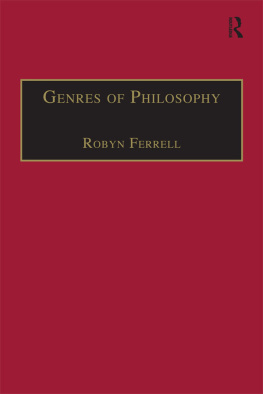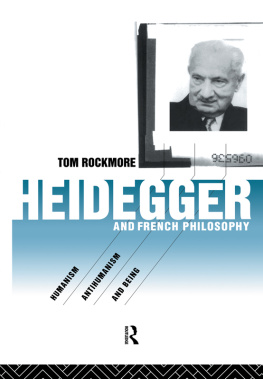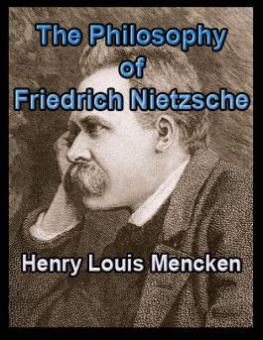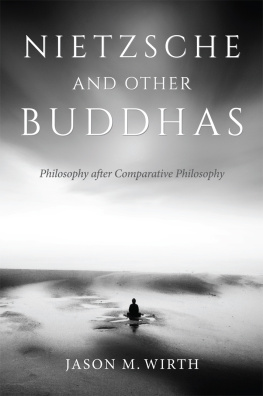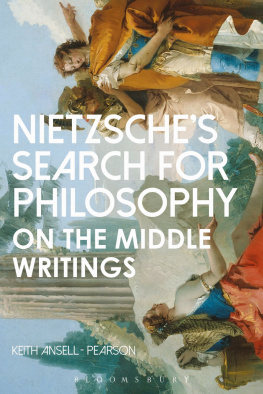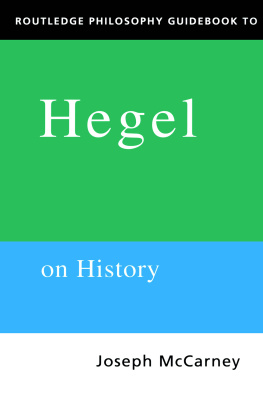Ferrell - Genres of Philosophy
Here you can read online Ferrell - Genres of Philosophy full text of the book (entire story) in english for free. Download pdf and epub, get meaning, cover and reviews about this ebook. year: 2017, publisher: Routledge, genre: Religion. Description of the work, (preface) as well as reviews are available. Best literature library LitArk.com created for fans of good reading and offers a wide selection of genres:
Romance novel
Science fiction
Adventure
Detective
Science
History
Home and family
Prose
Art
Politics
Computer
Non-fiction
Religion
Business
Children
Humor
Choose a favorite category and find really read worthwhile books. Enjoy immersion in the world of imagination, feel the emotions of the characters or learn something new for yourself, make an fascinating discovery.
Genres of Philosophy: summary, description and annotation
We offer to read an annotation, description, summary or preface (depends on what the author of the book "Genres of Philosophy" wrote himself). If you haven't found the necessary information about the book — write in the comments, we will try to find it.
Ferrell: author's other books
Who wrote Genres of Philosophy? Find out the surname, the name of the author of the book and a list of all author's works by series.
Genres of Philosophy — read online for free the complete book (whole text) full work
Below is the text of the book, divided by pages. System saving the place of the last page read, allows you to conveniently read the book "Genres of Philosophy" online for free, without having to search again every time where you left off. Put a bookmark, and you can go to the page where you finished reading at any time.
Font size:
Interval:
Bookmark:

GENRES OF PHILOSOPHY
The theory of thought is like painting: it needs that revolution which took art from representation to abstraction .
Gilles Deleuze, Difference and Repetition
For David
ROBYN FERRELL

First published 2002 by Ashgate Publishing
Published 2016 by Routledge
2 Park Square, Milton Park, Abingdon, Oxon OX14 4RN
711 Third Avenue, New York, NY 10017, USA
Routledge is an imprint of the Taylor & Francis Group, an informa business
Copyright Robyn Ferrell, 2002
Robyn Ferrell has asserted her moral right under the Copyright, Designs and Patents Act, 1988, to be identified as the author of this work.
All rights reserved. No part of this book may be reprinted or reproduced or utilised in any form or by any electronic, mechanical, or other means, now known or hereafter invented, including photocopying and recording, or in any information storage or retrieval system, without permission in writing from the publishers.
Notice:
Product or corporate names may be trademarks or registered trademarks, and are used only for identification and explanation without intent to infringe.
British Library Cataloguing-in-Publication Data
Ferrell, Robyn
Genres of philosophy
1. Philosophy 2. Philosophical literature
I. Title
Library of Congress Cataloging-in-Publication Data
Ferrell, Robyn
Genres of philosophy / Robyn Ferrell.
p. cm.
Includes bibliographical references.
ISBN 0-7546-0421-7 (alk. paper)
1. PhilosophyAuthorship 2. MethodologyHistory. 3. PhilosophyHistory.
I. Title.
B52.7 F47 2002
100dc21
2001046031
ISBN 13: 978-0-7546-0421-1 (hbk)
I would like to express warm thanks to Ros Diprose, Jenny Lloyd, Moira Gatens and Paul Patton for their generous suggestions during the writing of this book. I would also like to thank Andrew Benjamin and Christine Battersby for their kind support during my stay at the Centre for Philosophy and Literature at Warwick University in 1998; and to Jennifer Biddle, Belinda Chayko, Pip Cummings, Pene Deutscher, Lis During, Anna Gibbs, Fiona Jenkins, Jeff Malpas, Des Manderson, Doris McIlwain, Elspeth Probyn, Sarah Sorial, Dan Smith, Mary Spongberg, Nicholas Strobbe and John Sutton.
Earlier versions of some parts of appeared in Cartographies: post-structuralism and the mapping of bodies and spaces (Sydney: Allen & Unwin 1991, Rosalyn Diprose and Robyn Ferrell, eds), and the Australasian Journal of Philosophy , June 1993.
Whatever else philosophy is, it is textual it is written and it is read. Yet today, much of philosophy regards itself as a kind of science; it sometimes reduces itself to a species of intellectual bureaucracy. It is important to see these qualities as having their own aesthetic. Even realism is a genre.
The aesthetic of the empirical and the bureaucratic, the aesthetic of the rhapsodic and of the clinical ... in each of these, philosophy, as 'the creation of concepts' (to borrow Deleuze and Guattari's formulation), is as creative as it ever was. It is indeed productive of worlds, not only worlds of thought but 'real worlds' enabled by the technological and other change that thought has envisaged.
But although philosophy is 'a kind of writing', it is clear this observation never escapes from an aestheticised side-issue on literary merit, if it cannot be brought to bear on the philosophical concepts themselves. There is a barrier to doing so; paradoxically, it is the very habit of language to form the real, that prevents the 'literary' question from developing on the philosophical landscape the ontology of empiricism being that there is an unbridgeable gap between reality and representation.
And this is why philosophy, which is (a kind of) writing, is not all the same 'just a kind of writing' and why I cannot get to my philosophical point on writing solely from within 'philosophical aesthetics'. Nor, it seems, can I open the question from the starting point of the styles of philosophy, because that, too, emerges as a concept considered to be essentially incidental to the philosophical ideas themselves. This is despite the styles of philosophy being important indicators of its method of fabrication but this is a conclusion which I hope I demonstrate in practice.
The problem of the generation of new thought is one of how the present real is to be modelled in language . If there is a common tone to the philosophical texts considered here, it is that they seek to depict a certain sense of reality. The problem under analysis throughout these essays is how the means of expression produce a version of the real. At the same time, an argument is developed for why this has been such a difficult question for philosophy why the question of its writing is both too small and too large for philosophy.
Writing renders both thought and image, affect and force. Yet it does not attempt to reconcile them. Instead, it appears that writing remains essentially ambivalent for philosophy a medium of thought, and at the same time an expression for it. How can one understand the productivity of this ambivalence, except by developing concepts which dignify the rhetorical? One needs an ontology of metaphor and of genre, an epistemology of figure, tone, language and image.
I have adopted a concept of genre, rather than style, with which to pursue the question of philosophical writing, because that concept captures the notion of tradition in writing. I have done this because the problem for philosophy, regarding its writing, is not that certain kinds of philosophy display stylistic idiosyncrasies, although these are often commented on in the margins as creating a problem for its interpretation. The problem is more general: that every philosophical text is marked by tradition, and therefore by history, at the same time as it appeals to a more universal frame.
The history of philosophy is given by our view of the present, producing the concept of authority and tradition that we work within. The major figures in these essays are mythological figures in the story of Western philosophy. 'History of philosophy' is a modern invention, despite being presented as the past.
As GJ. Warnock wrote in his preface to a second edition of English Philosophy Since 1900 : ' ... the question what was important in the past is not detachable from the question what is to be valued now or in the future' (1969, viii). It is regrettable that the history of philosophy, like the area thought of as 'philosophy and literature', is given a necessary but adjunctive status in Anglophone philosophy currently. It is entrenched as a site of philosophy's softer feelings a place for the humility of scholarship and reverence for the past while it is nevertheless relegated to the fringes of debate and refused a claim on metaphysical reflection. The histories recounted in this book will not satisfy this reverence nor this confinement, and they will never form a canon. They are eclectic in personae and preoccupations. But they trace moments of spontaneity in thought from Plato to Heidegger and Wittgenstein which have formed from the niceties of textual expression.
My discussion engages with both European and Anglophone philosophy, often drawing on the readings of history of philosophy made by recent French philosophers. The vibrancy of this tradition in reading contrasts with the cursory attention paid to textual questions in the empiricist tradition. Jacques Derrida has recently described his readings in the history of philosophy as 'an act of love' and 'an act of faithfulness', 'a way of inheriting the past as a way of struggling with the primacy of the present' (Patton and Smith, forthcoming). And Gilles Deleuze writes:
Font size:
Interval:
Bookmark:
Similar books «Genres of Philosophy»
Look at similar books to Genres of Philosophy. We have selected literature similar in name and meaning in the hope of providing readers with more options to find new, interesting, not yet read works.
Discussion, reviews of the book Genres of Philosophy and just readers' own opinions. Leave your comments, write what you think about the work, its meaning or the main characters. Specify what exactly you liked and what you didn't like, and why you think so.

